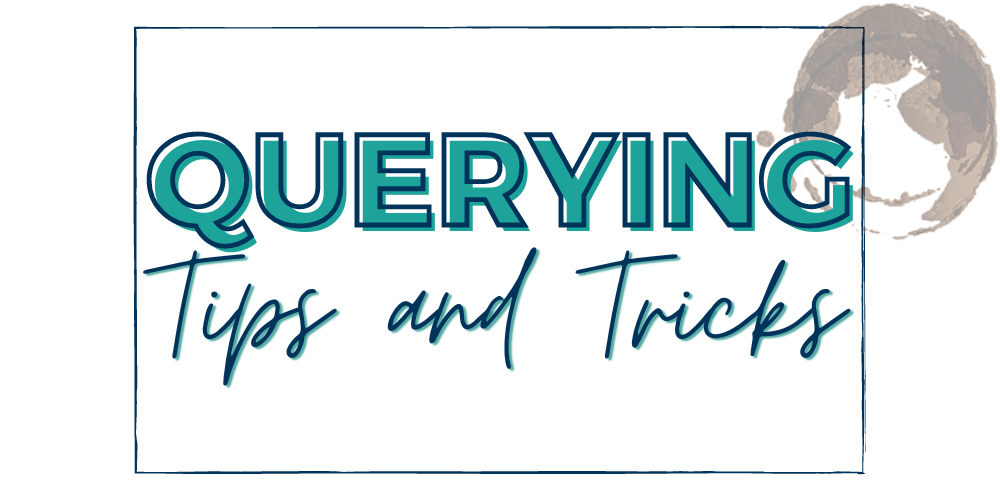
Hello super writers and goodbye to September. Our theme of the month had been “Querying Tips & Tricks.”
Always remember, when you’re going to start querying you want to give yourself the best chances—the biggest best chance is to ensure your novel is ready. It needs to not only be completed, but polished. Polished includes editing and revising. Having a critique partner or two or even having an editor help you isn’t a bad idea either.
Now for the query letter. What is your agent hook? Why did you choose them? What made you want to send them your book (i.e. MSWL, you heard them at a conference, spotted their name in the acknowledgements of a book you love, etc.)? After you’ve shared why you are querying that agent, dive into the book’s hook. Give the one-sentence tagline of your book. An example formula for a hook is: When event X happens, MC (age, descriptor, job, etc.—not name!) must face conflict and [win in a way only they can].
Time for the meat of the query! For the next two paragraphs think mini synopsis without giving away the ending. Paragraph one should intro the character and the world, while paragraph two’s focus is on the main conflict and stakes.
Querying a multi-POV book, the format will look a little different. For a multi-POV query, it should go as follows: hook paragraph, a paragraph per POV (or the main two or three if more than three) with clear individual stakes, and a closing paragraph that weaves the conflict and stakes together.
Next tell us the book stats: word count, genre, comp titles (optional, but helpful!). There are typical word counts for genres and age categories—don’t go too high or too low! No 140k YA books, please. Not knowing this could land you in the auto-pass pile, too.
Don’t forget the bio portion. This is where your credentials go—published works, writing awards, or your background, if it’s appropriate for what you’re writing, it goes here. Also, be sure to end your query professionally.
Keep your query short. The whole thing shouldn’t be any longer than 350-400 words. Too long of a query could send you to the automatic pass pile. It should be single spaced and not indented (formatting correctly shows following guidelines!).
Research the agents, agencies, and indie pubs you’re submitting to. Make sure they accept your genre and age range and are also open to queries. Don’t waste their time or yours by subbing an adult novel to a children’s agent or vice versa.
Be prepared for passes from agents, it’s part of the process, as much as that may stink. Agents don’t revel in sending them—they have to focus on the stories they connect with and that they have a vision for in the market. This is a business partnership, so they need to have these in mind.
While the query trenches can feel disheartening, remember four important things:
- focus on your own journey
- persistence is key
- a pass does not mean you are a bad writer
- and it only takes one yes
Especially remember that last one.
We believe in you, dear writers! Thanks for joining us for “Querying Tips & Tricks.” See you next month, until then, keep it up!

